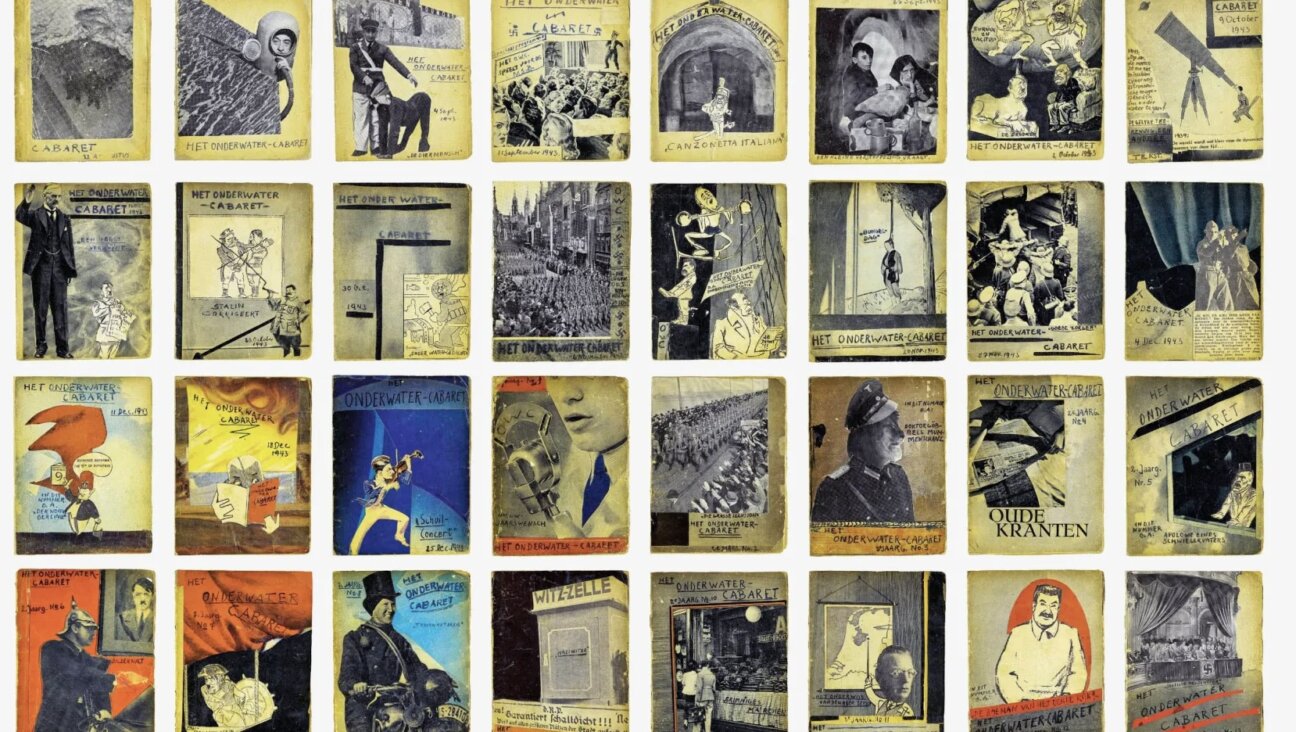A.M. Klein: Portrait of the Poet as Person

Graphic by Angelie Zaslavsky
In a 1943 letter to his colleague A.J.M. Smith, Montreal poet A.M. Klein complained of critics’ tendency to identify him primarily as a Jewish poet.
“Why did they… have to go flaunting my circumcision?” he asked. “It’s an adolescent trick — this whimsical opening of another man’s fly.”
Despite his protestations, Klein is still largely remembered as a Jewish poet — and not without justification. As both a person and an artist, he was deeply in love with the heritage he received from his parents and from his teachers, a fact fittingly reflected in his nostalgic recollections of his childhood in the once heavily Jewish Montreal neighborhood surrounding Saint Lawrence Boulevard. His poetry, as he explained in a letter to Yiddish critic Shmuel Niger, dealt with cultural synthesis and the problem of expressing one culture in the language of another. And contrary to his complaints to Smith, he was critical of Jewish artists who disregarded their cultural identity. Klein accused these artists of having “nothing original to contribute.” After all, he reasoned, “one cannot create with another’s genitals.”
But while much of Klein’s writing did, in fact, take Jewish themes as its subject, his quest for general literary acceptance was also fulfilled. As delegates at a recent conference on Klein indicated, his contributions to Canadian and modernist literature went beyond the Jewish content of his poetry. Held at Montreal’s Concordia University and sponsored by Concordia’s Institute for Canadian Jewish Studies, the conference featured such noted Canadian literary scholars as Klein authority Zailig Pollock, of Trent University, and Brian Trehearne, a McGill University expert of Canadian modernism.
While the discussion of Klein included his early work, such as the collection “Hath Not a Jew,” the most enduring part of Klein’s legacy is undoubtedly his 1948 collection, “The Rocking Chair and Other Poems,” which received Canada’s prestigious Governor General’s Literary Award. The collection dealt not with Jewish subjects but with the province of Quebec and its people. While many of the poems are written in Klein’s frequently complex style, such as the multilingual homage to the city of Montreal, some of the collection’s most powerful pieces are simple and direct, such as Klein’s critical portrayal of Quebec nationalism in “Political Meeting,” or the rural nostalgia of the titular “The Rocking Chair.” The collection also includes what many consider to be Klein’s finest poem, “Portrait of the Poet as Landscape,” a haunting meditation on the fate of the poetic vocation in the face of modernity. Along with his acclaimed novel “The Second Scroll,” the poem represents the zenith of Klein’s literary career, though its allusions to paranoia and madness also foreshadow its author’s mental collapse in the mid-1950s and Klein’s ensuing retreat into silence and solitude for the final decades of his life.
Though Klein is celebrated today primarily for his foundational role in Canadian letters (The Quebec Writers’ Federation Prize for Poetry is named in his honor), he was a man of many talents, many interests and many occupations. By profession he was a lawyer, having studied law at the Université de Montréal, and for a few years he lived in the small Quebec mining town of Rouyn, where he opened a modest legal practice. For two-and-a-half decades he was also the editor of the Canadian Jewish Chronicle, the English counterpart to the seminal Yiddish newspaper Der Kanader Adler. In his weekly editorials, Klein commented on such topics as antisemitism both at home and abroad, Canada’s involvement in the Second World War and Zionism, of which he was a life-long supporter. Though Klein’s artistic aspirations remained primarily poetic, the editorial position served as an important creative outlet for him and as a channel for his essays, reviews and translations of Yiddish and Hebrew works. His career also included a three-year stint teaching poetry at McGill University, two unsuccessful forays into federal politics under the banner of the socialist Co-operative Commonwealth Federation (later to develop into the New Democratic Party) and speaking engagements all over North America on behalf of the fledgling State of Israel.
While for the most part, Klein was able to reconcile his multiple activities and obligations, they eventually took a toll on his personal life as well as on his artistic sensibilities. In addition to his literary work, Klein was a longtime speechwriter and public relations consultant for business magnate Samuel Bronfman, head of the Seagram Company, and president of the Canadian Jewish Congress from 1939 to 1962. In a 1942 journal entry, Klein lamented his role writing souvenir programs for philanthropic banquets. “Poor me!” he wrote. “Poet parsleyate to a menu… it is a humiliation only a philanthropic world makes possible.”
Despite his self-disgust, Klein remained an employee and personal friend of Bronfman’s for decades. He continued to send him birthday greetings long after he had ceased to communicate with most others. According to his son Colman, who spoke at the Concordia University conference, Klein was fascinated by power and by those who wield it.
But despite his affiliation with Bronfman, it was not just commercial or political power that interested Klein. As a socialist candidate he believed in the power of the people, and as a young rabbinical student in the power of God. But it was the power of language that fascinated him most of all, a power to which he gave lasting expression through his true vocation — poetry.
Ezra Glinter is a Montreal-based writer and an editor of The McGill Tribune.

















